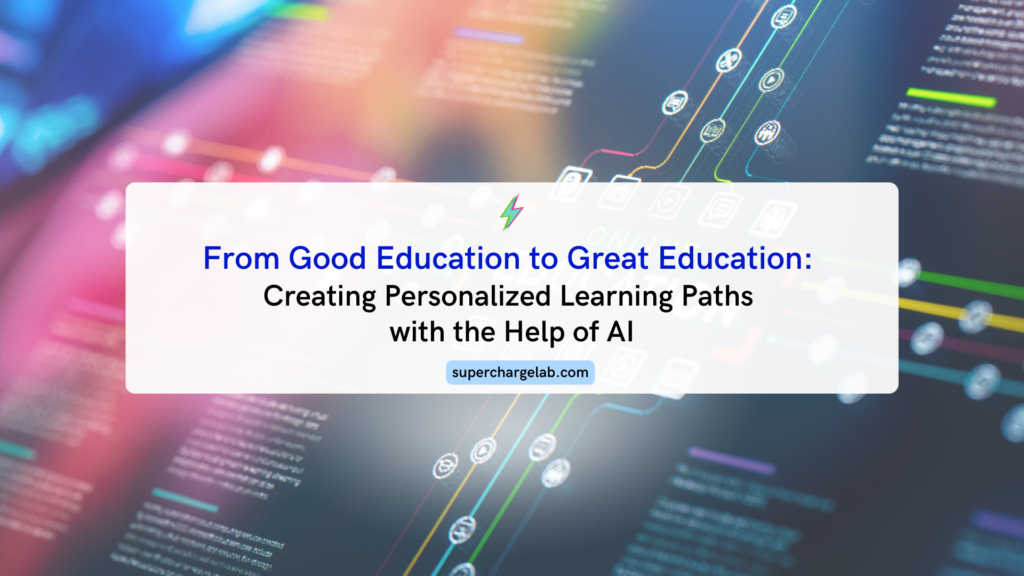
Artificial intelligence (AI) is changing the learning game. Why? Traditional education often uses a one-size-fits-all approach, which can leave many feeling frustrated. Here’s the good news, AI-powered technology can personalize your learning journey, regardless of your age or interests. Customized learning paths are created to fit your unique style and goals. This is what AI in education can help you achieve! That’s why AI-powered education offers solutions that empower individuals and revolutionize the learning experience.
1. The Limits of Traditional Education
Traditional education often relies on standardized curricula and teaching methods that cater to the average student. This can leave many children behind, especially those who learn at a different pace or have unique learning styles. Not every child grows in a lecture-based environment, and some may excel in hands-on activities or project-based learning. A formal academic performance is not always indicative of future success. Many successful individuals struggled in traditional school settings but found their strengths and passions through alternative paths.
It’s also important to acknowledge that different people learn differently. Some are visual learners, while others are auditory or kinesthetic learners. Some prefer to work independently, while others thrive in collaborative environments. Traditional education often fails to accommodate these differences, leading to frustration and disengagement for many students. Personalized learning, on the other hand, can address these diverse needs and learning styles, providing a more inclusive and effective educational experience.
2. The Personal Tutor for Every Student
AI-powered educational platforms are revolutionizing the way students learn by acting as virtual personal tutors. These platforms adapt to each student’s pace, learning style, and interests, providing tailored content, feedback, and guidance. Intelligent tutoring systems, for example, can assess a student’s strengths and weaknesses, then create personalized learning paths that focus on areas where they need the most support. These systems can also adapt the difficulty of the material in real-time, ensuring that students are appropriately challenged but not overwhelmed.
Additionaly, AI-powered platforms can provide instant feedback, helping students identify and correct mistakes as they learn. This immediate feedback is crucial for reinforcing learning and preventing misconceptions from taking root. By continuously adapting to the student’s progress, AI-powered tutors can create a more engaging and effective learning experience, helping students reach their full potential.
3. Empowering Learners to Reach Their Full Potential
Personalized learning has been shown to increase engagement, motivation, and achievement for learners of all ages. When individuals are presented with material relevant to their interests and learning styles, they are more likely to be engaged and motivated to learn. This leads to a deeper understanding of the material and improved outcomes, whether you’re a student seeking academic success or an adult looking to expand your professional skills or pursue a lifelong passion
A research by the RAND Corporation on personalized learning interventions suggests the potential to improve student achievement, particularly in math and reading. While the effects can vary depending on the specific intervention and context, some studies have shown positive results, indicating the potential of personalized learning to enhance student learning outcomes
Beyond academic benefits, personalized learning can also foster a love of learning and a growth mindset in learner. When people feel empowered to take ownership of their learning and explore topics that interest them, they are more likely to become lifelong learners who are curious and eager to explore new ideas.
4. Teachers and AI: A Winning Combination
It’s important to emphasize that AI is not here to replace teachers but to empower them. Automating routine tasks like grading and data analysis gives teachers more time to focus on mentoring, inspiring, and guiding students. Teachers can use the insights provided by AI to better understand their students’ strengths and weaknesses, tailor instruction to individual needs, and provide more personalized feedback.
One innovative example is the use of proactive chatbots as mentors for students. These chatbots can provide academic support, career guidance, and emotional support, acting as virtual mentors that are available to students 24/7. This can be particularly beneficial for students who may not have access to traditional mentoring programs or who prefer to communicate digitally. By empowering AI, educators can create a more supportive and personalized learning environment for all students.
5. The Future of Learning, Personalized
The future of education is personalized. AI has the potential to democratize education by making high-quality, personalized learning experiences accessible to students everywhere, regardless of their socioeconomic background or location. AI-powered platforms can adapt to the needs of learners with disabilities, providing them with the tools and support they need to succeed.
As AI technology continues to advance, we can expect even more sophisticated personalized learning tools and platforms. These tools will not only help students achieve academic success but also prepare them for the challenges and opportunities of the 21st-century workforce, fostering skills like critical thinking, problem-solving, and adaptability. Personalized learning is not just about improving test scores; it’s about empowering students to become lifelong learners who are curious, engaged, and prepared for the future.
Let’s discuss how we can help you build personalized learning solutions that empower students and revolutionize the learning experience. https://calendly.com/superchargelab